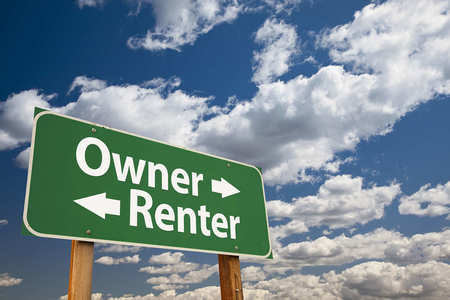
When a real estate investor or consumer puts money in the residence where he or she will live, that investment is often among the most expensive that he or she will make. This article will shed light on some of the more significant considerations that need to be made by the investor or consumer as he or she assesses and answers the ultimate question: should I purchase a home to live in or rent a home to live in?
Frankly, this topic begs the question for many: what happened to the great American dream? When I was growing up I was assured that if I worked hard at my job, while saving enough money to buy a home (i.e. “palace”), I would eventually live happily ever after with my family in a home I owned. There was never any question about whether or not I was going to buy a home and live happily ever after with my family. This vision of life, which became such a powerful staple of American culture, was so common and normal that people took it for granted.
Then a new reality seemed to take over. This reality seems to have thrown a myriad of financial questions and uncertainties into the mix, and it put the more traditional buy-a-home approach into doubt. It was no longer an obvious conclusion, and for some of us that route didn’t make sense anymore.
As we will see, there are legitimate questions to answer, and these answers will make a person wonder whether renting a home to live in is arguably more sensible than buying a home to live in.
Advantages of Renting
Let’s start with examining some of the data about renting. As explained by Mortgage Calculator, research has shown the following advantages of renting:
- The initial investment to rent a home or apartment is very small. Typically, buyers need to have anywhere between five to 10 times to move into a home than to rent an apartment.
- The funds that would normally be used toward a down payment or higher mortgage payments can be invested into savings accounts that give higher returns.
- The renter has limited responsibility because they do not have to take care of repairs. As a homeowner, the owner is responsible for all repair costs.
- Rent is an amount that is fixed and may even include utilities in the rental amount. A fixed amount can allow the renter to set a budget easier because the renting cost is set.
- As noted by Investopedia, the renter has more mobility and flexibility to move since leases tend to be short-term. When you rent, you know exactly how much you’re going to spend on housing each month. You’ll never have to pay to replace your roof when you rent.
- Insurance costs are lower for renters because the renter only needs to insure the contents of the rental property and not the structure itself.
OurFamilyPlace.com concludes this section for us with these three excellent points:
- You’re not gaining equity when you rent, but you’re not not losing it either.
- When the lease is up, you can just move.
- There is generally less work in maintaining a home or apartment.
Disadvantages of Renting
While the above points might sound great, there are pro’s and con’s to everything. As noted here, there are three significant disadvantages to renting:
- No matter what happens with the value of the home, you will never gain equity.
- Limited--or no--ability to personalize your living quarters.
- No tax advantage to renting. Your landlord gets any and all tax breaks that are available.
Disadvantages of Buying
For the other side of it--buying a home--we’ll get the disadvantages out of the way first and end with the advantages. This includes five disadvantages:
- Equity may go up, down, or stay stagnant.
- If you want to move, home generally must be sold.
Note that a homeowner runs the risk of not making any profit through resale. This is often caused by economic factors such as a recession or high interest rates, or simply through a particular location becoming less desirable. - Work needs to be done by you--or paid for by you.
- Generally requires a larger initial investment--the down payment.
- As noted by Property24, a homeowner has less mobility when it comes to being able to move from their home than a tenant who rents on a short-term basis. A tenant can leave a property after fulfilling the notice period, which is usually one month. However, a homeowner is likely to be dependent on selling their home before being able to buy a new one, and therefore it might take longer to be able to move homes once the decision has been made to do so.
Advantages From Buying
Finally, there are distinct advantages to purchasing home. Depending on your needs, these advantages, as noted by Our Family Place, might be enough to make purchasing a home worth it for you:
- Over time, the mortgage balance decreases and equity builds, even if the value of the home does not increase.
- The ability to remodel and redecorate the home to match your needs and desires
- There can be tax advantages attached to home ownership.
Conclusion
The foregoing is a summarized version of some of the pro’s and con’s of buying and renting a home. Hopefully, this information will provide a well-informed perspective as you navigate a financial path that has become less cut and dry in today’s economic environment.
